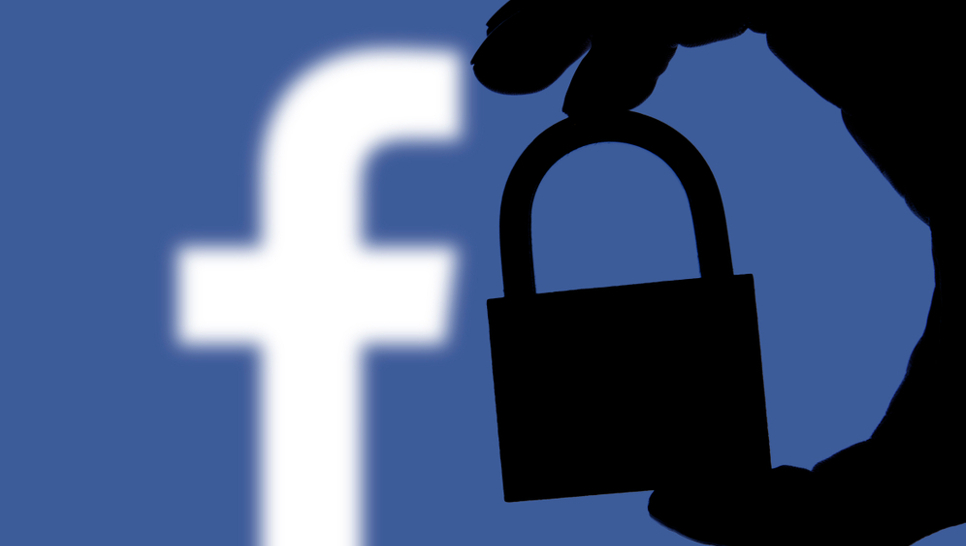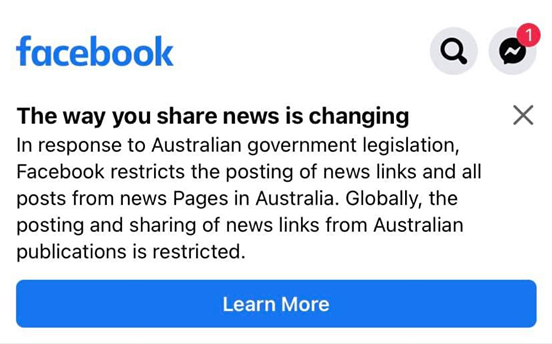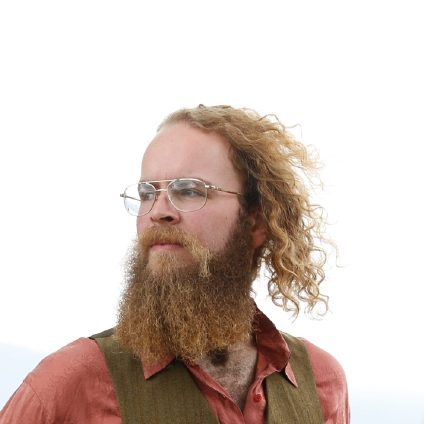Facebook has banned news in Australia
Social media giant takes on Australian Government

Facebook has announced that it will ”restrict publishers and people in Australia from sharing or viewing Australian and international news content” as a result of the Australian Government's Media Bargaining Code.
Although the Code is still due to be voted on in parliament, the news ban in the country is already in effect, with Australians waking up to messages from the social media giant explaining the changes.

The story so far
Australia's Media Bargaining Code proposed that tech giants such as Facebook and Google pay local media publications when linking to their content, in the hope that the revenue is shared more fairly between media sources.
Naturally, both Facebook and Google disagree with this proposal, variously claiming that it misses the point. Facebook spokesperson William Easton said the law ”fundamentally misunderstands the relationship between our platform and publishers who use it to share news content”.
Facebook had threatened to block news content in Australia since September, and is now making good on its threats, and Google stated it would stop operating its search engine in the country if the law was passed.
Microsoft, seizing on this opportunity, sided with the Australian Government and put forward its search engine Bing as an alternative, offering to increase its investment in it if Google were to pull its own engine from the country.
In fact, Microsoft even went as far as suggesting that the US adopt the same laws that Australia is proposing, claiming that it ”strengthens democracy by requiring tech companies to support a free press”.
Get daily insight, inspiration and deals in your inbox
Sign up for breaking news, reviews, opinion, top tech deals, and more.
The opposite of news
Regarding the specifics on Facebook's latest ban, it affects all people and news organizations in Australia. Neither party will be able to view, link to, or share any news, either locally or globally.
This means Australian publications that have previously gained global readers via sharing to Facebook will lose all visibility and ability to do so.
It also means that any Australian that looked to Facebook to keep up to date on global events (or local, for that matter) will no longer see any news items appear whatsoever.
According to studies conducted by analysts Roy Morgan, as of March 2020, 37.7% of Australians relied on social media as their main source of news, and a further 16.5% relied on news feed sites like Google News – in both cases that's a significant portion of the population.
The fallout continues
Facebook's move to ban news in Australia has already started to have some worrying consequences that the social media company may not have foreseen, with numerous pages other than those of news outlets being blocked.
State health departments such as SA Health and Queensland Health have been blocked, as the Guardian reports. Many of these pages supplied vital information about the Covid-19 pandemic, and the rollout of vaccines, so to block them at this time is extremely concerning. While some of the pages have been restored, a lot of damage may have already occurred.
Numerous charities including Bowel Cancer Australia and the Kids Cancer Project were also blocked. Australia's main domestic violence phone service, 1800 Respect, has also been affected.
Some Australians angered by Facebook's actions have deleted their Facebook accounts and are urging others to follow suit, taking to social media to share the hashtag #deleteFacebook.
1800 Respect is gone now too.That's Australia's main domestic violence phone service. https://t.co/vbMUN6YAFJ pic.twitter.com/HKEl7ySpnJFebruary 17, 2021
While many people are angry with Facebook for this move, some people are also blaming the Australian government.
Australia's shadow health minister, Mark Butler, tweeted that ”Australians need to hear from credible voices in the vaccine rollout. This is completely irresponsible from Facebook. The Morrison government needs to fix this today”.
Completely unacceptable by Facebook. The Morrison Government must fix this today. https://t.co/GgZzslD8HuFebruary 18, 2021
Facebook has also issued a statement saying: “As the law does not provide clear guidance on the definition of news content, we have taken a broad definition in order to respect the law as drafted. However, we will reverse any pages that are inadvertently impacted.”
It's notable that in this statement Facebook doesn't take complete responsibility for the problem, but is at least planning to restore pages that have been impacted that shouldn't have been. However, when these pages will be restored is yet to be seen.
The Guardian also reports that Facebook chief executive Mark Zuckerberg has spoken with federal treasurer and deputy leader of the Liberal Party Josh Frydenberg, who tweeted that they had a ”constructive discussion” about ”finding a pathway forward”.
This morning, I had a constructive discussion with Mark Zuckerberg from #Facebook. He raised a few remaining issues with the Government’s news media bargaining code and we agreed to continue our conversation to try to find a pathway forward.February 17, 2021
We've contacted Facebook ourselves for comment, and we'll update this article if and when we receive a response.
Google's deals
While Facebook says it followed through on its threats ”with a heavy heart”, Google has begun signing deals with Australian media publications, striking a five-year, AU$30m deal with Nine media and entering into talks with others such as the ABC and Guardian Australia.
Rupert Murdoch's News Corp has also made a global deal with the tech giant, which will enable its publications to continue to appear in Google News and the Google search engine, but the deal also involves establishing a subscription platform shared between the two companies.
No doubt this situation will develop further in the coming days, so stay tuned for the latest on Facebook and Google's news bargaining.
